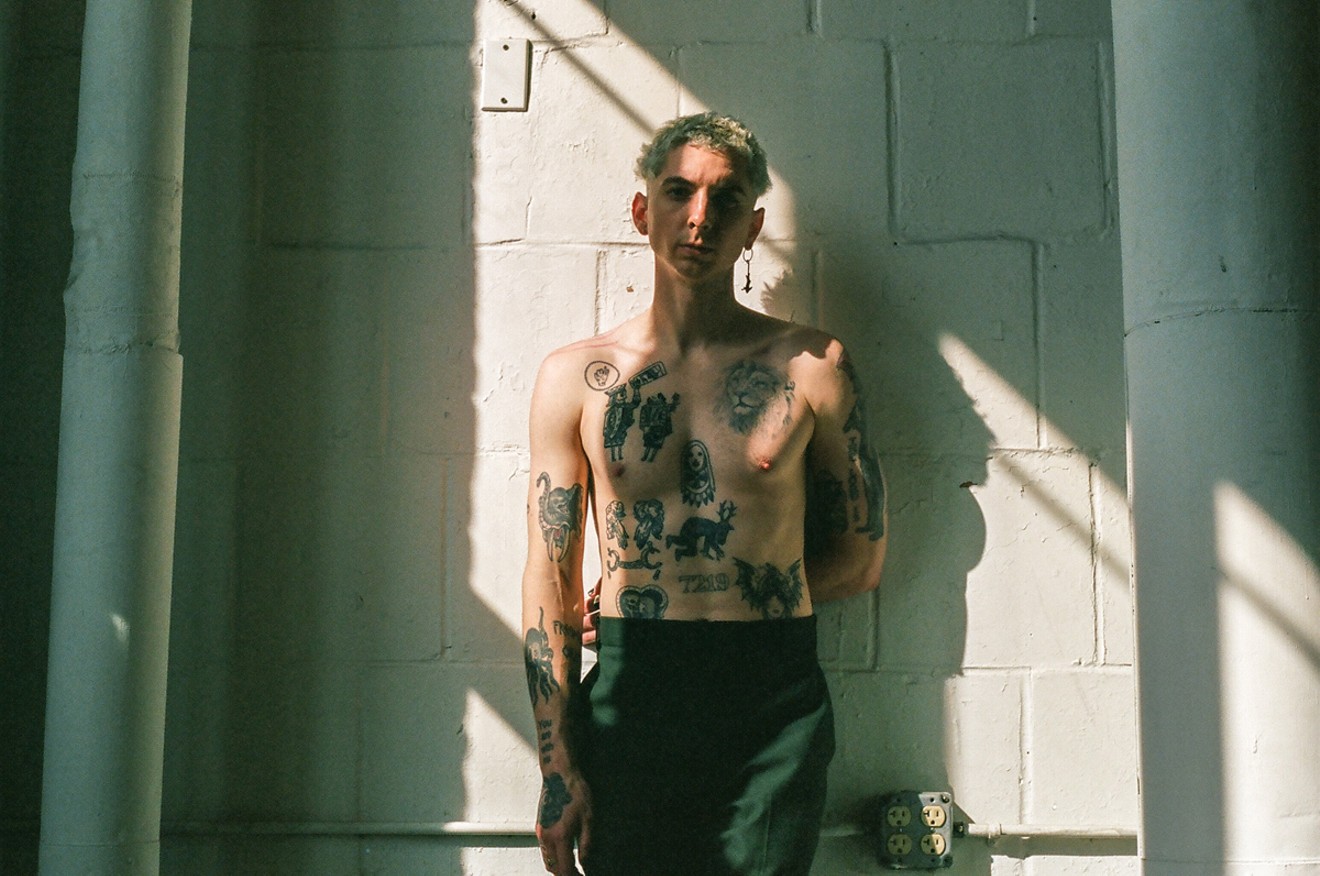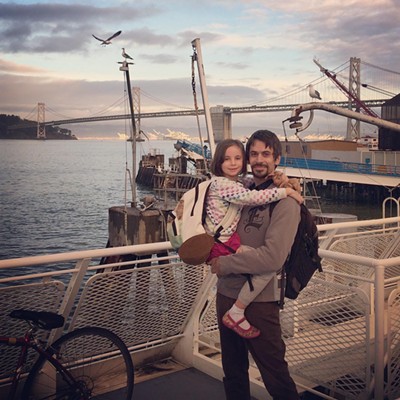Trevor Powers was a 22-year-old Boise kid in 2010 when he debuted as Youth Lagoon and garnered acclaim for endearing lo-fi indie-pop songs with heartwarming lyrics like “I have more dreams than you have posters of your favorite teams.”
He’s traversed wondrous, dark psychedelia and grand Roxy Music-esque rock since then, and on the recently released Mulberry Violence (his fourth full-length release), he’s shed the Youth Lagoon moniker altogether.
The new album embraces exquisite production — a long way from the dorm-room charm with which he originally found success — and finds Powers deep in personal and cultural reflection. We spoke with him ahead of an intercontinental tour that launched in his hometown of Boise on September 26 and hits Lost Lake on Saturday, October 6.
Westword: Is Boise a more intellectual place than most people think?
Trevor Powers: I definitely think there’s more to Boise than people assume. There are multiple different layers to it, and I think you could make that argument with any city, but there’s groups of people similar to myself where they get out of Boise very frequently and they’re always challenging themselves, making themselves feel uncomfortable, and then they come back.
Boise’s more of the spot where you can breathe, where you relax before you go out again. And then there’s also groups of people where they don’t leave and they’re sucked into how comfortable it is. I definitely think too much comfort is a bad thing.
Who are you playing with on this tour?
One of my closest friends [multi-instrumentalist Ukiah Bogle], who has been in my life probably close to a decade, is playing with me, and there are two of us on stage. It’s me and him. It has been such an amazing challenge to be able to figure out how to do this with two people.
From the very beginning, we sat down and started figuring out everything together, and it was a necessary element to have someone that I’ve been close to for that long to be able to figure that out with. If it had been a stranger or someone who wasn’t that involved in my life, I think it would’ve been a much bigger pain in the ass. But it’s going incredibly.
That sounds like Sylvan Esso — only two people, but still a lot of energy on stage.
Yeah, there’s only so much you can do with two people, to the point where I would argue that there’s almost more you can do. You’re so set on challenging yourself with how much you can pull off with two people versus when you have more people on stage, it’s easy to just fill the space because. You get to the point where you’re battling with people’s egos, and people have a hard time not making sounds.
So much of the musical spectrum that I’ve been working on is a mix between the chaos and the silent and the withdrawn, not making any sounds, playing off of ultimate noise versus ultimate silence. That kind of perspective is easier to pull off with two people, especially two people who are very close.
Do you have to fill more space musically now, to the point that you can’t run in circles around the stage as much?
Luckily there ares certain parts where I’ll put a little more on Ukiah’s shoulders, and he’ll free me up to be a spaz for a little bit. So there’s definitely a lot of running around.
The influence of hip-hop is really popping out in your music suddenly. Are there certain hip-hop artists you’ve always been drawn to?
Oh, I fucking love hip-hop. I’ve always been a huge Kanye fan, to be honest. It’s a touchy thing — who Kanye is and how he’s informed people of who he is recently. There’s that struggle that you have when you identify so much with a musician, just a full-on fucking artist, and then when they come out and say things that you disagree with with your entire being; there is that internal battery where you’re like, “Oh, man, I just don’t know to feel about this anymore.” But his music has always struck a chord with me; I may not agree at all with what he’s been saying recently, but his music still touches me.
You’re not as active on social media as someone like Kanye, obviously, but you’ve said some vulnerable things online, and you’d rather post a photo of a decrepit abandoned pool than post a selfie. What does being on social media mean to you?
As an artist, there’s that expectation to be on social media so you can inform people about what you’re working on, and I get it. At the same time, I have the personality type where if I didn’t have the need to inform people of what I’m doing creatively on social media I probably wouldn’t have it. I really do cherish and treasure my time away from what is happening digitally, especially because so much of the music I’m working on exists within a computer, so my time away is very valuable. Since I do have social media, I try to just make it not boring.
You also seem to have fun with making people uncomfortable.
I do have fun with that. That’s one of my favorite things in every aspect of life. When you make someone feel uncomfortable in the sense of music, for instance — if you give someone a little bit of familiarity with certain sounds they can compare to another artist, that does bring that element of comfort; they let their guard down. So when you surprise them with other things within the music that they’re maybe not expecting, it makes the impact that much greater to have a little bit of the abrasiveness between the beauty.
With every new record, people wonder who you’ll be next. How much of an influence are iconoclasts like David Bowie or Miles Davis in that?
That’s always my goal, because again, a lot of it comes down to getting bored, in the sense of healthy boredom — where you express something a certain way, so that’s already been said, so you now want to express something a different way, a new way. That’s what’s always pushing me, because if I feel like I’ve already done something, why would I do it again?
What is "Mulberry Violence"?
I stumbled on this article shortly after I’d started writing the record, and it was on the significance of mulberry trees within multiple different cultures. Primarily they’re said to represent wisdom and patience, because what a mulberry tree does is wait until the danger of frost is completely gone before it starts to bud. And then after frost is gone, overnight it buds. So it represents patience, which to me is the very opposite of the way that we as human beings function, because we’re acting out of impulse and things feel very violent, very unwise in general.
Sometimes it can be a good thing to act out of your gut, but what we’re seeing in the current social and political climate is all these people who are acting like animals and treating people with such disgust. When I was reading about mulberry trees versus how much of humanity is just foul and disgusting now, I just saw antonyms, opposites. Putting those together makes sense with what I was writing – the push and pull, the antonym mentality. I was even picturing angels and demons playing in the same band as I was writing. There would be an angelic part and then a part that sounds like it was created by a monster. How do you make those fit into the same musical universe?
Do you feel like you’re getting out trauma through music, whether it’s your own trauma or the trauma of living in America right now?
Oh, totally. I’m influenced much more by what I’m struggling with, or the tough things in life, the battles, way more than I’m influenced by the good things. Sometimes I wish that wasn’t the case, because if I put on a happy song, I wonder what it’s like to be able to go through something that’s remarkable in life and then go, “Ah! I wanna write a song about that. I had a really good time on the beach, playing in the waves; I’m really inspired to go home and write a song about that.” That is not the way my brain works at all. If I’m in a place where everything feels lovely and peaceful and good, usually I won’t work on music.
It’s possible, though. Your next record might be called Really Good Time Playing on the Beach.
Yes! That would be amazing. The cover art is just me on the beach building a sandcastle.
So you’re playing smaller places on this tour. Is it harder to book shows as Trevor Powers, or is everybody is coming over who was a fan of Youth Lagoon?
I have been surprised at how many people have been making the transition with me. There are challenges when you kill something and start something new, but this is a necessity for myself and my brain and my creativity. The main reason is that when I started Youth Lagoon it was never meant as something that continued. Even the name was a reflection, looking back on things that had happened in my past. When I felt I had said enough, I still evolved within that project but the evolution definitely had a cap. When I felt like I’d reached that, the only way I could live in myself and make music was to completely end it and continue under my own name. I was completely done speaking through that filter that was Youth Lagoon.
Trevor Powers
9:30 p.m. Saturday, October 6, Lost Lake Lounge, 3602 East Colfax Avenue, $15-$17.
[
{
"name": "Air - MediumRectangle - Inline Content - Mobile Display Size",
"component": "12017618",
"insertPoint": "2",
"requiredCountToDisplay": "2"
},{
"name": "Editor Picks",
"component": "17242653",
"insertPoint": "4",
"requiredCountToDisplay": "1"
},{
"name": "Inline Links",
"component": "18838239",
"insertPoint": "8th",
"startingPoint": 8,
"requiredCountToDisplay": "7",
"maxInsertions": 25
},{
"name": "Air - MediumRectangle - Combo - Inline Content",
"component": "17261320",
"insertPoint": "8th",
"startingPoint": 8,
"requiredCountToDisplay": "7",
"maxInsertions": 25
},{
"name": "Inline Links",
"component": "18838239",
"insertPoint": "8th",
"startingPoint": 12,
"requiredCountToDisplay": "11",
"maxInsertions": 25
},{
"name": "Air - Leaderboard Tower - Combo - Inline Content",
"component": "17261321",
"insertPoint": "8th",
"startingPoint": 12,
"requiredCountToDisplay": "11",
"maxInsertions": 25
}
]












